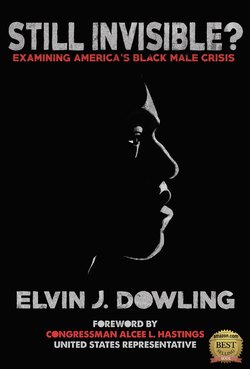Читать книгу Still Invisible? - Elvin J. Dowling - Страница 29
На сайте Литреса книга снята с продажи.
"A Lie Doesn't Care Who Tells It!" What's Wrong with Harmless Humor?
ОглавлениеNoted American human rights and anti-corruption activist, John Pendergrast, once said, "American's perceptions of Africa remain rooted in troubling stereotypes of helplessness and perpetual crisis." Since the rise of western civilization, Africa, rich with its natural resources and diverse topography, has effectively been marginalized as the "dark continent" in need of salvation, governance and authoritarian by good white folk, like myself (of course), seeking to civilize the natives. In fact, throughout the course of American history, Black men, like the continent from which their ancestors hail, have been cast in a pejorative light that has, at times, been blinding and at other times illuminating. Whether confronted with issues of social justice, civic engagement, or economic empowerment, the challenges these men face are, fortunately for everyone else in America, localized primarily to them and, as a result, are undetectable in the eyes of to the uninitiated and ill-informed. For me, however, as the paragon of justice and fair play, I am acutely aware of what's happening to them but, as you can imagine, my hands are tied. Be that as it may, however, that doesn't mean I don't feel their pain and sympathize with their struggle. I mean, what kind of lady do you think I am?
Beginning in the mid-nineteenth century and continuing even today, the constant degradation of Black men in the eyes of the general populace has been a matter of economic survival and social stratification that has helped to perpetuate white supremacist ideology ever since. In fact, many of the more popular tropes that have been tactically deployed to torpedo the ambitions of Black men, have included labeling them as lazy oafs, brutish beasts, ignorant children and dangerous criminals who must be kept at arm’s length and controlled at all costs. In fact, one of the most universal suppositions attributed to people of color, not just Black men, is the notion that "they all look alike." Popularized in the song "All Coons Look Alike to Me: A Darkey Misunderstanding" written, composed and performed nearly 125 years ago by America's first Black Broadway star, Earnest Hogan, the idea that the African-American community is just one big, homogenous group, indistinguishable one from the other, is a malignant metaphor that continues to last the test of time. Whether used by even the most well-meaning law enforcement officers who habitually stop and frisk innocent pedestrians under the guise that they "fit the description" of a sought-after suspect, or utilized as the punchline to an off-color joke, there is no denying the fact, even by me, that African-Americans, in general and Black men, in particular, are clearly subjected to debilitating depictions that can weigh down even the strongest amongst us.
Born Earnest Reuben Crowdus and raised in the rolling hills of Bowling Green, Kentucky, Earnest Hogan began his show business career as a traveling minstrel singer, who would ultimately reach the heights of fame and fortune on the backs of his own community as he enamored white audiences with his catchy tunes that became a musical phenomenon known as the "coon song craze" of the 1890's. Later on, in life, Hogan regretted having contributed to the degradation of Black culture, but not before it made him exorbitantly rich by most standards. I mention this because, just like Hogan, there are showbiz entertainers willing to make a heap of cash "steppin' and fetchin'" for the Almighty Dollar (but I digress). Eventually, Hogan died at the age of forty-four years old in 1909, with today's equivalent of $715,000 in the bank; most of which earned from his aforementioned doozy of a ragtime tune. Speaking of which, "All Coons Look Alike to Me", is a song of unrequited love for a woman who dumped her beau for another man who, (and I'm not making this up), looked just like him! (Isn't that hysterical)?
"All coons look alike to me. I’ve got another beau, you see/And he’s just as good to me/As you, nig! ever tried to be/He spends his money free/I know we can’t agree/So, I don’t like you no how/All coons look alike to me" ("All Coons").
And while those characterizations may be patently unfair, for the rest of America, it’s a price we are willing to let Black men pay if that's what it takes to keep them on the periphery of society. Moreover, in our never-ending quest to maintain control of all aspects of life in this country, many of the hapless souls who have had the burden of being born Black in this country, don't even realize that, regardless of what they do, they may never quite "fit in" with mainstream America. Yet they keep trying... and that's alright by me for, if nothing else, it helps to build character. And that's worth something...right?
Today, while it is important to note the work that lies ahead in building a more just nation for all of our citizens, everything isn't all doom and gloom, if I do say so myself. From mass media, to politics, to pop culture, African-American men have staked out a corner of the market that is truly all their own. Moreover, with the proliferation of "gangster trap" music (see what I did there?), there's no place to go but up when it comes to the public perception of African-American men, and we can all celebrate that... Can't we?
Always Hopeful,
Lady Justice
